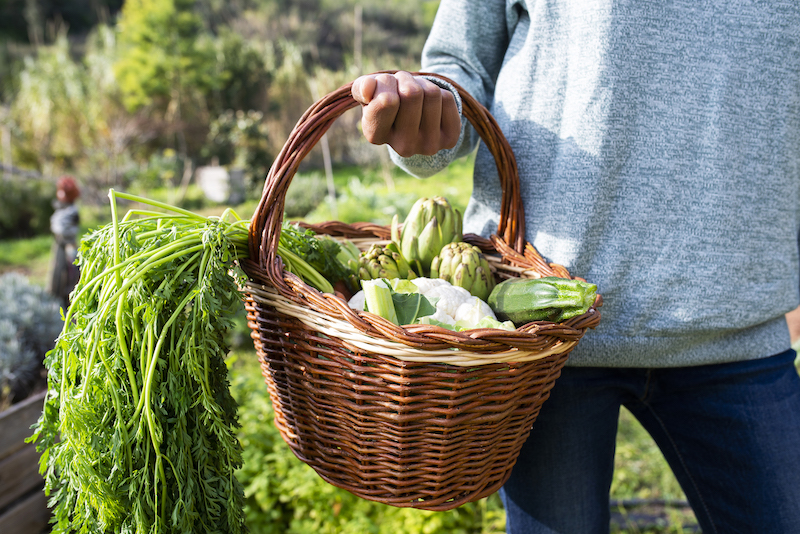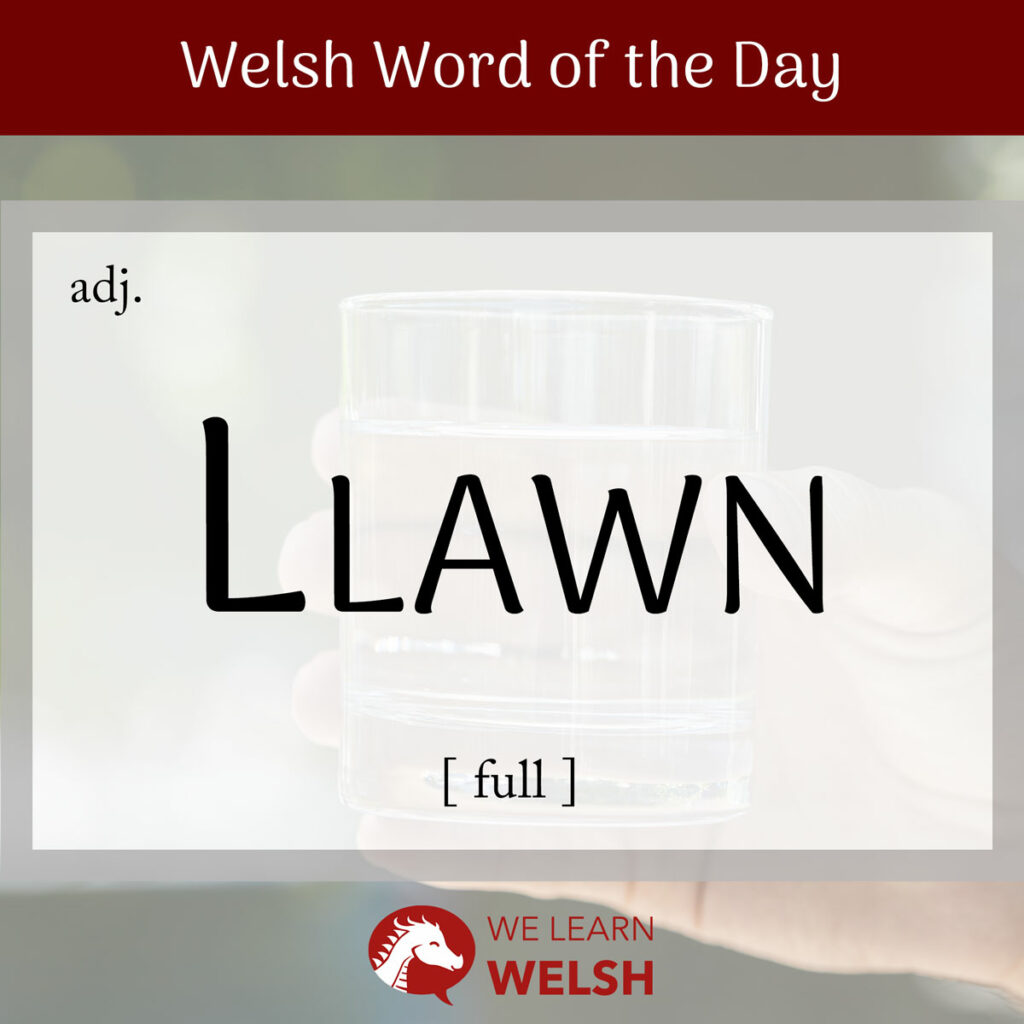You may have heard the word llawn in the chorus of one of the best-known Welsh songs, Calon Lân: Calon lân yn llawn daioni. This translates to: a pure heart full of goodness. Having grown up in Wales, I’ve been singing these words since primary school, but it wasn’t until more recently that I gave some proper thought to their meaning. Today I’ll help you understand this iconic lyric a little better too, by focusing on the word llawn.
llawn
full
Llawn is the Welsh word for full. If something is llawn, it means there is no room for more. This word is only susceptible to one mutation, the soft mutation, which changes it to lawn. Llawn comes from the same root as llanw, meaning tide.
Soft mutation
lawn
Nasal mutation
N/A
Aspirate mutation
N/A
If you are referring to a quantity (for example, a bucketful or a handful of something) in Welsh, you need to use a variant of llawn: llond.
- Llond bwced o ddŵr = a bucketful of water
- Llond llaw o gnau = a handful of nuts
Similar to English, if you are finished eating and your stomach is full, you might say Dwi’n llawn (I’m full) or Dwi wedi cael digon (I’ve had enough). But pay attention! If someone says Dwi wedi cael llond bol (I’ve had a stomach-ful), you shouldn’t take this literally. This is an idiom meaning to have enough/be fed up.
You might say that you’ve had a llond bol if someone is llond ei esgidiau/dillad (pompous lit. fills their shoes/clothes) and is mynd llond y lôn (strutting around like they own the place). When I meet someone like that, I wish I could rhoi llond pen/ceg iddyn nhw (lit. give them a headful/mouthful), that is, give them a telling off!
Mae creision yn llawn braster.
Crisps are full of fat.
Another idiom that uses llawn is llawn llathen. If you say Dydy hi/e ddim yn llawn llathen, you are calling that person stupid or crazy. The literal translation of this idiom is She/he is not a full yard. In English, the equivalent phrase would be to say that someone is one sandwich short of a picnic or maybe that they are not all there.
Other useful phrases containing llawn and llond include:
- lleuad lawn = a full moon
- llawn-amser = full-time
- llond lle, llond y byd, llond trol = plenty, loads
- llawn bywyd/llawn o fywyd= full of life, lively
- llawn dop = very full
- llawn gwynt/llawn o wynt = puffed-up, self-important (lit. full of wind)
- llawn (o) hyder = confident
If you want to say that a space is jam packed, you don’t need to use the word llawn at all. It’s common for Welsh people to say that a room is dan ei sang, which literally translates to trampled.
The verb version of llawn is llenwi (to fill). This word is found in the first line of another very famous Welsh song, Myfanwy: Paham mae dicter, o Myfanwy, yn llenwi’th lygaid duon di? (Oh Myfanwy, why is anger filling your dark eyes?). Does llawn show up in any of your favourite Welsh songs?
The opposite of llawn is gwag, which is susceptible to the soft and nasal mutations. For instance, you might hear the soft mutation if someone says Mae hwn yn wag! (This is empty!). In practice, you’re unlikely to see the nasal mutation applied directly to gwag but you might see mutated versions of gwagle (gap/space) or gwacter (emptiness) e.g. Teimlais yn heddychlon yng ngwacter yr eglwys (I felt peaceful in the emptiness of the church).
Lots of Welsh terms and idioms use gwag, for instance:
- caff gwag/cam gwag = disappointment
- breuddwyd wag = wishful thinking
- swydd wag = job vacancy
- un llaw yn wag a’r llall heb ddim = empty handed (lit. one hand empty and the other with nothing)
By now you should be llawn hyder when it comes to using llawn and gwag in Welsh. I hope your day is llawn hwyl (fun-filled), although if it’s a Monday that might be a breuddwyd wag!


